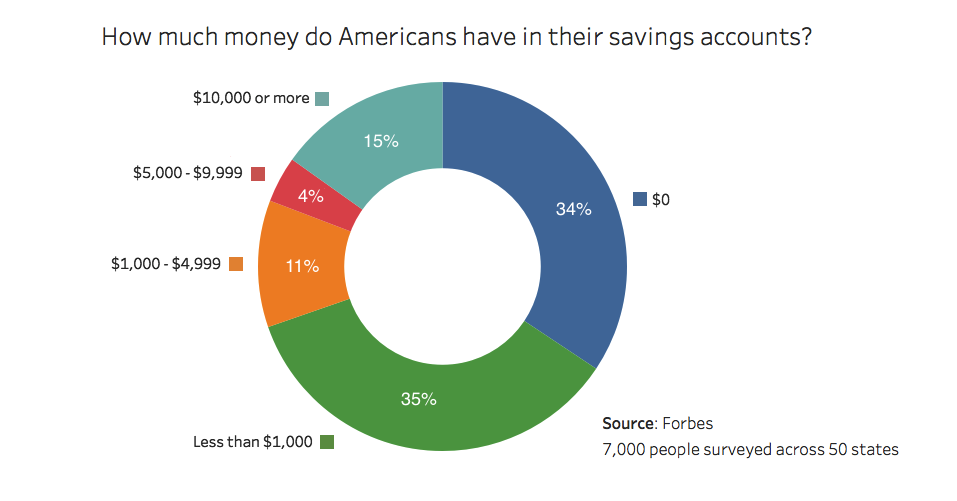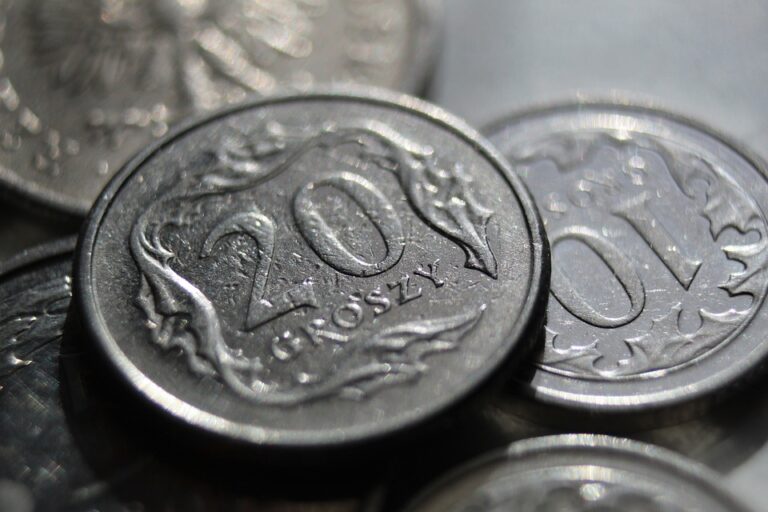Last updated Jul. 5, 2023 by Charles Zemub
survey: half of Americans don’t have 250 to spare ( why you should learn To save)
Most Americans are not immune to financial crises. Do you know why? A survey by The Balance claimed that “Half of Americans have less than $250 leftover each month as discretionary income.” And at least 12% live paycheck to paycheck, with no form of savings whatsoever!
Are Americans aware of these financial vulnerabilities? It wasn’t until the economic fallout of the pandemic that compelled most Americans to start taking note of their finances.
This self-awareness period revealed many areas of concern about their finances. And most are now looking beyond the false security that the 9-5 job offers.
Why Should Americans Start Saving Now?
The answer is very simple. To enjoy greater financial security throughout one’s life. Setting aside some emergency funds means there’s something to rely on when the inevitable happens.
Having discretionary funds also allows you to pursue other financial ventures like investing or starting a business and take calculated risks with little worry.
Also, experts believe those with more discretionary cash are more likely to be content with their source of income.
In this article, I will give you more reasons why you should start saving today and not tomorrow.
Reasons Why Americans Can’t Save Money

Spending money, as most people would agree, requires no learning, but the subject of saving money is difficult. Although there’ve been changes to the overall saving rates of Americans, a larger percentage of the population is still not socking away enough funds.
Trying to develop a saving-first, spending-last habit with little or no progress? These can be one of the underlying reasons:
1. Working Without a Budget
The main reason for a budget is to give you a bird’s eye view of the inflows and outflows of your finance each month. Not having one is a big disadvantage when saving money is a new experience for you.
A common scenario is you decide you’ll be saving some cash at the end of the month, then boom, something inevitable happens, and you are left with no extra cash to spare. A budget would offer you more control allowing you to keep up with your savings.
2. Failing to Set Goals
Setting specific targets or goals you aim to achieve helps you remain focused and committed to the cause. If there’s no specified definition of why you want to save and the amount you’ll be saving, it’s easy to get distracted along the way.
To achieve your set goals, always remind yourself of what your goals are and what it’ll take for you to reach them. Planning is easier when you’re specific about what you want to do.
3. No Preparation for When Life Happens
Life happens, and everyone experiences in one way or another their share of financial setbacks at some point. The refrigerator goes out, or there’s car trouble, and suddenly, you’ve got to cover unplanned expenses.
Your planned savings gets swallowed up by something else, or worse, you end up getting into debt.
Not having a backup plan for such scenarios leaves you with nothing to fall back on when life happens, and it surely would.
4. Staying in Debt
Many financial experts would tell you that saving money while still in debt isn’t healthy for your finances. While you may have some cash saved up in a bank, you’re actually in the red if you owe an equal amount or more to your creditors.
Most fail to realize that you’re paying much more in interest on the debt than you’re earning from saving in the bank. However, a good approach would be to secure a small emergency fund (maybe $1,000) and aggressively tackle your debt.
5. Making Excuses
Almost everybody has a reason for not saving; making excuses is easy. I don’t earn enough. I’m just no good with numbers. My parents never taught me about money. These and more are self-imposed mental roadblocks preventing you from saving.
You’ll struggle with your savings if you keep these bad money attitudes. A shift of perspective about money is not a feat you can achieve overnight but with strong determination, it’s attainable and would pay off long-term.
Importance of Savings and Why You Should Start Saving

1. Financial Freedom To Chase Your Dream Career
You probably know one close friend or relative who claims to hate their current job but must still have to go to work because they lack the financial freedom to fire their boss. With enough savings, this scenario would have been best avoided.
Developing a savings attitude can empower you with the financial stability required to pursue your passion.
You’ll agree with me that if you’ve got enormous savings in the bank plus some investment bringing in interests monthly into your cash flow, you won’t put up with a job you hate.
2. Secure Your Financial Future
No one can predict the financial future accurately, and no technology can do that yet. That’s why it is crucial to prepare for the unseen.
Creating a safety net where you can put aside some money for future occurrences would give you peace of mind and certainty about the future.
Doubting the need for savings? Ask yourself these important questions: Can you afford to pay your bills if you get laid off at work today? What would you rely on when old age prevents you from working? What would be your fate in the face of a financial storm?
When it comes to financial stability, know that the more funds you have in savings, the safer you’ll be financially.

3. Fun
A lot of people seem to associate saving with sacrificing fun; that’s a wrong mentality. You should know that fun is also part of your finances and it’s essential to both your physical, mental, and financial well-being.
Form a habit of saving for fun to reward yourself once in a while. Since you’ll be using the money you’ve saved up specifically for fun, you won’t feel the guilt of jeopardizing your financial future, splurging on the fun.
4. Emergencies
There’s no way to stop some emergencies situation from happening in life; we can only hope we’re better prepared when they do come. Decent savings would relieve you from the financial stress, whether it’s a broken-down car or a more emotional one that involves a family member.
In these emergencies, the last thing you want to worry about is money. You’ll be doing yourself a favor by creating and saving some emergency funds. Hopefully, you will never need it, but if you do, you will be thankful it exists.
5. Stress Reduction
Financial stress can be a scary experience; it could wake you up with sweat or keep you awake at night. Fortunately, you can protect yourself from finances simply by having more money in reserves.
Sadly, everyone wants more money, but only a few are willing to save for it. Truth be told, there’re rare stories of lottery winners who became rich overnight; however, what’re the odds of that happening?
That leaves you with the option of saving money and investing to preserve and increase your money over the years.
6. Helping Others
Having a passion for humanitarian aid is good, but it requires you to be in the capacity to help.
Let’s assume you donate 10% of your monthly income to your local church or charity with nothing left to save at the end of each month.
This means your ability to give is tied to your annual wages. But if you save and invest your money, as the interest compound, so does your ability to save.
Think about how much you’ll be able to donate to people from the generated income from a $10,000,000 investment! Remember to help yourself before you attempt to help others.
7. Your Marriage
Over 50% of all divorces today are as a result of money troubles. If you’re currently married, you’ll testify that the road together financially is not always smooth and there’s bound to be moments of friction.
And from personal experience, I can assure you that saving would help you reduce the number of disagreements you’ll have, and agreeing to save and working towards it together would strengthen the bond between you and your spouse.
8. Leaving A Financial Legacy
Have you ever wondered what your legacy would be after your demise? Would it be filled with stories of how you left the family with financial hardship and debt to inherit? Or perhaps a tale of honor, knowledge, and fiscal prudence.
You should know by now that your financial legacy would affect the people around you. Irrespective of your current age, your loved one would be the one to receive the most impact, either negative or positive, and it all boils down to how you manage your money.

For your family’s sake, prioritize saving and investing, cut down spending, and get out of debt fast. It’s the best gift you can give to your loved ones. Remember always to pay your taxes.
9. Education
Going to college nowadays is an expensive luxury. Gone were the days when tuition fees cost shekels and nickels.
The combined expense of going through elementary, middle, and high school is also high. But if you start saving early, there’s a possibility you’ll weather through without having to break a sweat.
Saving extra cash for your own or your children’s education is not only a wished thing to do but the right thing.
10. Big Purchases
High-end purchases like big-screen TVs, pieces of furniture, yachts, cars, and so on are necessities most can’t afford at these times.
And if you decide to approach such luxuries in the wrong way, could leave you in huge debt and could potentially lead to the feeling of buyer’s remorse in a no distant time.
These types of expensive items are sometimes necessary and exciting at the same time. For instance, to commute to work, you’ll need a ride. Again, it won’t be that convenient living in a house with no furniture. You should have enough to be able to afford them.
11. Home Ownership
Owning a house is not cheap; it comes with a lot of costs you’ll have to bear from time to time. Some of these expenses may be small, like changing furnace filters, or major ones, like kitchen remodels.
Although most of these housing costs can be covered with your cash flow, you’ll be at an advantage if you have a plan for them.
A good strategy is creating a separate savings account for housing expenses. This would remove any guilt you might feel having to dip your hands into your main savings account when a need for an upgrade or fix surfaces.
12. Major Life Events
Not all life events would require you to spend money; however, there are some major ones that can be very expensive, such as weddings and expenditures associated with having newborn babies, to name a few.
These events are often unavoidable and essential to most people. So it will make sense to save funds for such occasions.

The moment you test positive for pregnancy, you should start preparing to welcome the little fella on the way. And you can bet it’ll require you to scrape as much as you can from your budget into it.
Also, you should start saving for your daughter’s wedding the moment she starts fantasizing about having one.
13. Minimizing Financial Risk
The more money you accumulate in your investments or savings account pushes you towards financial stability and reduces financial risk.
Take a look at this scenario: You’re planning to start your own business. You have $10,000 at hand; you choose to invest $6,000. This means you’ve risked 60% of your net worth should the business fail.
But if you had chosen to save and invest the $10,000 growing it to $1,000,000, investing $60,000 would be risking 6% of your net worth. Since you’re only investing 6%, earning the invested money back in interest alone over the next year would be easy.
14. Annex The Power of Compound Interest
Most financial heroes know how important the power of compound interest is to wealth building. And if you continue to spend all your earnings, leaving no room for savings, you will miss out on this excellent financial opportunity.
While compound interest can be a powerful financial force, it’s a slow process that requires time for its impact to be felt. It’s not a get-rich-quick scheme and won’t double your money overnight.
Saving today means you will see the results only after some years, but waiting for years without saving would show you no results; the choice is yours.

Conclusion
Thanks for reading through to the end of this post. By now, you should have strong reasons to consider putting aside some cash every month to give your financial life some security.
Remove all the mental roadblocks you’ve placed on yourself, limiting you from saving money. Start saving in today, and thank me later.






